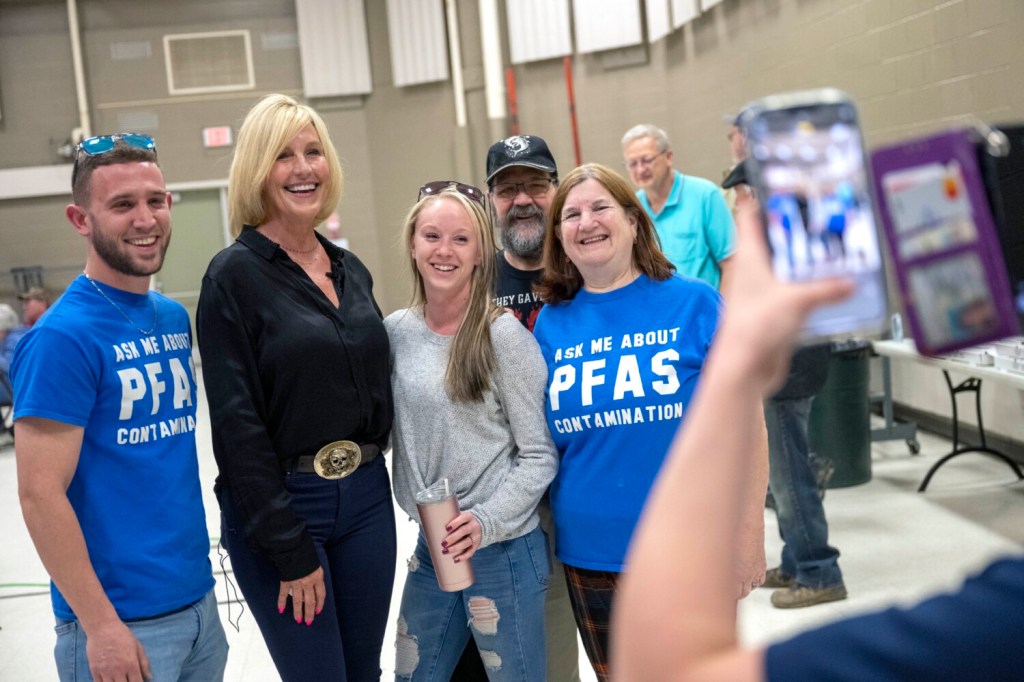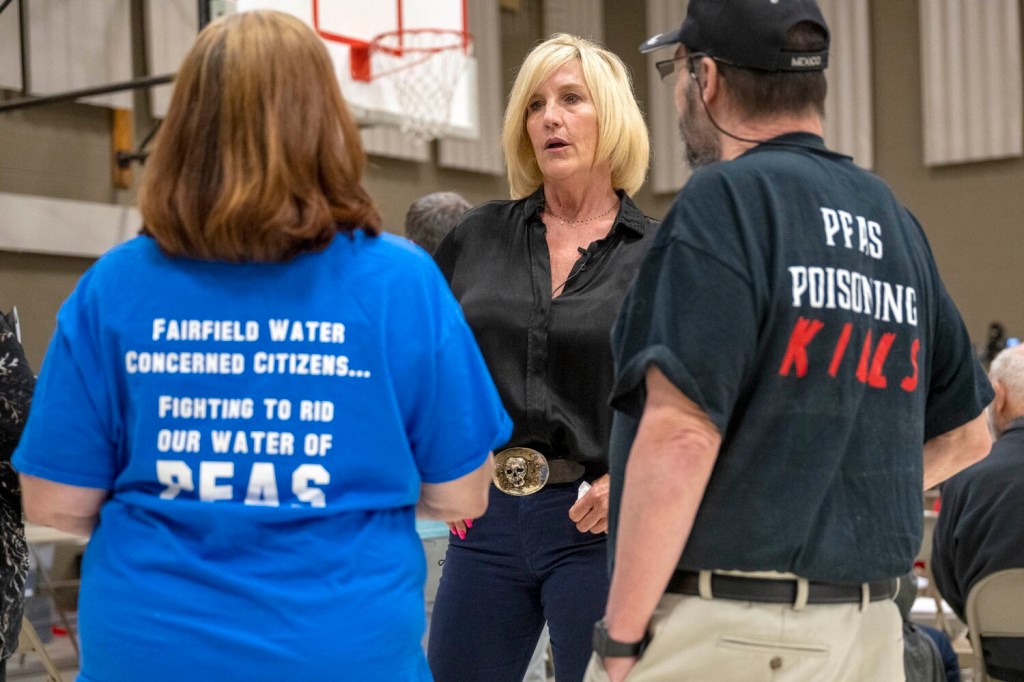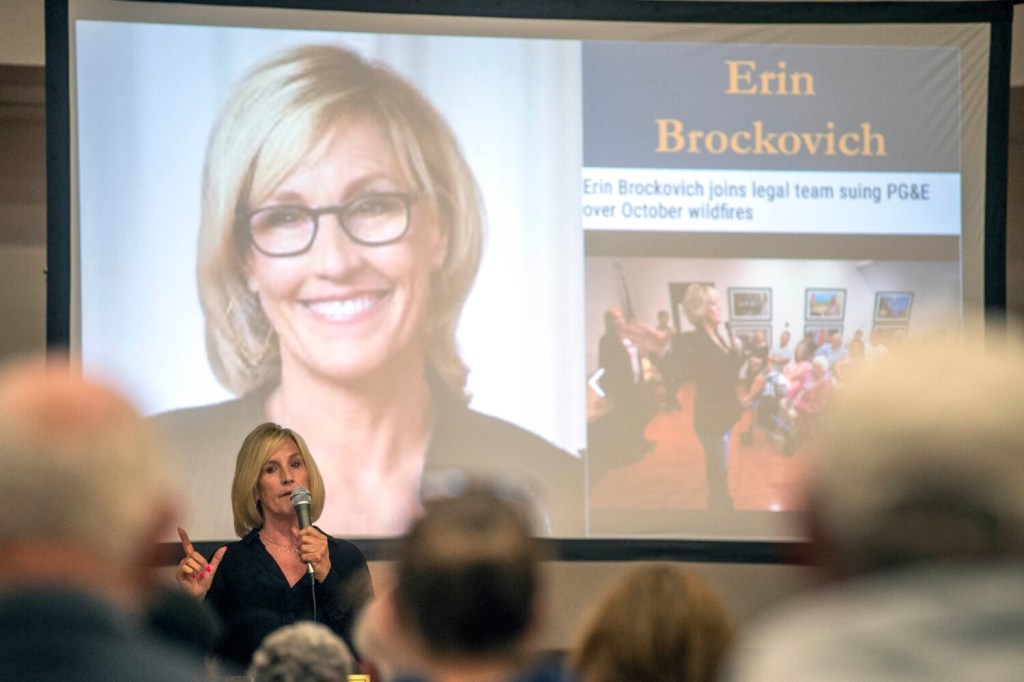Residents expressed concerns about the scope of “forever chemical” contamination and whether they should be worried about finding the chemicals in more than just their well water.
Roughly 100 local residents turned out to the Fairfield Community Center on Friday night, and around another 100 people came to the Unity Fire Station on Saturday morning for two town halls hosted by Garmey Law, with consumer advocate Erin Brockovich.
“This is one of the bigger moments I think I’ve ever seen in my 30 years where there could actually be a shift in how it is we will deal with our hazardous waste and chemicals going forward,” Brockovich said ahead of the Saturday event. “By using this planet as a dumping ground, we’ve just dumped on ourselves.”
The Unity Fire Department pulled its trucks out of the station to make room for attendees Saturday, who filled the space, and questioned just how the lawsuit proposed by hosts would help them. Attendees asked who was eligible to join the lawsuit, what if the companies sued attempted to file for bankruptcy and what if they joined the lawsuit but died before it concluded.
And Friday night in Fairfield, residents questioned the scale of the problem. One asked that since the chemicals have been found in deer and fish, should they be worried about their beef or other meat they get from the grocery store. Another asked if the chemicals are in fish at the Police Athletic Ponds, is it really safe for their kids to play on the nearby fields.
“Forever chemicals” refer to PFAS, or per- and poly-fluoroalkyl substances, which earned that nickname because they do not break down in the environment or the body. Created in the 1940s, they repel oil and water, which has made them useful in a wide variety of consumer products.
In Maine, the contamination has been linked to the spread of sludge, a wastewater treatment byproduct that was used as a substitute for fertilizer. The Maine Department of Environmental Protection has been investigating the contamination in the Fairfield area, and is now working on testing sludge spreading sites around the state for PFAS contamination.
Attendees at the two town halls heard from lawyer Mikal Watts, water expert Bob Bowcock and Brockovich, all of whom are involved in the effort with Garmey Law to file a lawsuit over the contamination in the area. All speakers got significant applause, and many attendees at the Fairfield meeting said that they had attended the town halls hosted last month as well.
Brockovich said she first learned about the issue when residents emailed her foundation about it and that she was proud of the community for banding together to combat this issue.
“There is serious pressure that is finally being put on the state, that (it) should have responded sooner, but it took you — it didn’t take me showing up, it took you showing up,” Brockovich said Friday.
Bowcock said that when he started to look into the contamination in the area he was shocked by the level of PFAS in the soil and water, which were some of the highest he has seen in the country.
As for the lawsuit, the team involved includes Garmey Law, a Portland-based firm; Watts Guerra LLP, which includes Watts and his team; Brockovich; and other. They are not looking to file a class-action lawsuit, like the one filed last year by Fairfield resident Nathan Saunders. Instead, Watts said, they are filing a mass torte, which means that each person involved has their own case.
Watts and Bowcock said that they have been able to trace the source of the PFAS back to the paper mills in the area, like Sappi and Huhtamaki. Although the companies would be named in the lawsuit, they are not the final target, Watts said, just the starting point, and the legal team would work to take the issue back to the chemical companies that created PFAS.
The organizers have filed one case already, in federal court in Bangor, after they requested some information from Huhtamaki and the company did not want to turn it over.
Send questions/comments to the editors.







Comments are no longer available on this story